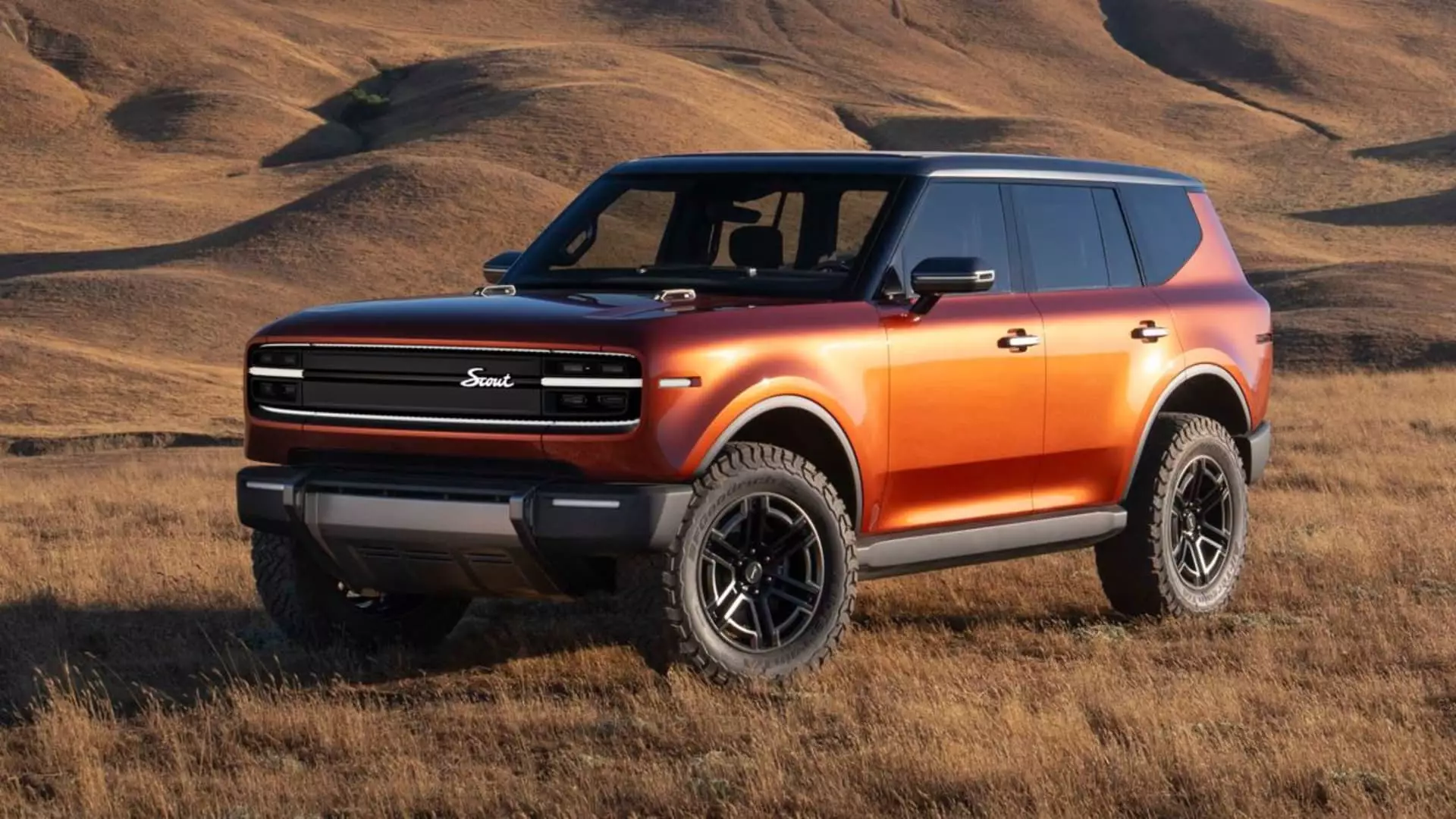In a notable resurgence of a classic American vehicle brand, Scout Motors, under the Volkswagen umbrella, has unveiled its inaugural electric vehicles (EVs) while simultaneously pivoting to include an emerging category of plug-in hybrid electric vehicles known as Extended-Range Electric Vehicles (EREVs). Originally founded in 1961 and ceasing production in 1980, the Scout brand holds a unique place in automotive history. Today, as the EV market continues to evolve, Scout emerges as a startup keen on redefining itself in the competitive landscape of electric mobility.
The decision to broaden the lineup from a sole focus on all-electric models to a more inclusive range that incorporates EREVs reflects a strategic response to the practical challenges facing electric vehicle adoption. The anticipated growth of consumer demand for EVs has lagged behind initial projections, spurred by concerns over cost and charging infrastructure.
Scott Keogh, CEO of Scout Motors and a seasoned veteran in the automotive industry, expressed the importance of adaptability within the startup framework. “Being a startup that moves quickly, we can pivot,” he explained, suggesting that quick decision-making is essential for survival and success. The acknowledgment that consumer preferences require a backup plan in the form of EREVs reveals Scout’s commitment to meeting customer needs while staying within the framework of electrification.
An EREV operates as a hybrid, integrating an electric powertrain with a traditional internal combustion engine to ensure that drivers are not left stranded should their battery deplete. This dual system not only offers consumers a seamless transition into electrification but also lays the groundwork for a more sustainable vehicle ecosystem. Keogh underscored the merits of this approach: “It will drive like an EV,” he stated, reinforcing the commitment to a fully electric driving experience, with the combustion engine functioning as a safety net.
Scout’s introduction of a full-size pickup truck and large SUV is particularly significant, as these vehicle types dominate a large share of the highly lucrative U.S. automotive market. Their strategy aims to capture approximately 40% of this market segment, a goal that places them right in the crosshairs of established players like Ford and General Motors. While other electric vehicle startups like Rivian and Lucid grapple with financial sustainability and production challenges, Scout’s plan to achieve operational profitability within its first year marks a potentially significant milestone in the fiercely competitive landscape.
The development of a dedicated $2 billion manufacturing facility in South Carolina illustrates Scout’s long-term commitment to vehicle production in the U.S. With a projected capacity to churn out 200,000 vehicles annually, the production plant promises to position Scout as a formidable competitor in an industry rife with uncertainty.
Unlike many traditional automakers that rely on franchised dealership networks, Scout intends to sell its vehicles directly to consumers. Such a direct-to-consumer model not only streamlines the purchasing process but also allows for a closer relationship with customers, potentially offering real-time feedback that can be incorporated into future product offerings.
With the company now accepting reservations for its two initial models—the Traveler SUV and the Terra pickup truck—Scout is signaling its readiness to disrupt the status quo. Set to launch in 2027, both vehicles will be priced in the competitive range of $50,000 to $60,000, positioning themselves within an accessible price bracket for many consumers, especially when factoring in available government incentives.
The design ethos behind the new Scout vehicles draws inspiration from the brand’s storied past, while also modernizing its aesthetic for a contemporary audience. The vehicles showcase a blend of classic Scout characteristics infused with new technology, with spacious interiors, digital interfaces, and durable materials catering to a diverse set of preferences.
In terms of performance, the vehicles will feature substantial ranges – over 500 miles for EREVs and around 300 miles for fully electric models. This level of range is designed to alleviate common consumer anxieties related to electric vehicle ownership. Additionally, the advanced charging capabilities and energy management systems underline Scout’s dedication to innovation, essential for competing against established SUV manufacturers like Jeep and Ford.
As the EV sector undergoes rapid transformation, Scout Motors emerges as a beacon of resilience and ingenuity. With plans for expansion and diversification beyond the initial offerings, the outlook for Scout appears promising. The company’s ongoing focus on efficiency, performance, and consumer understanding lays a strong foundation for enduring success in a market characterized by swift technological advancements and shifting consumer expectations. By marrying nostalgia with modern technology, Scout Motors not only honors its legacy but also strives to shape the future of electric mobility in the American landscape.

